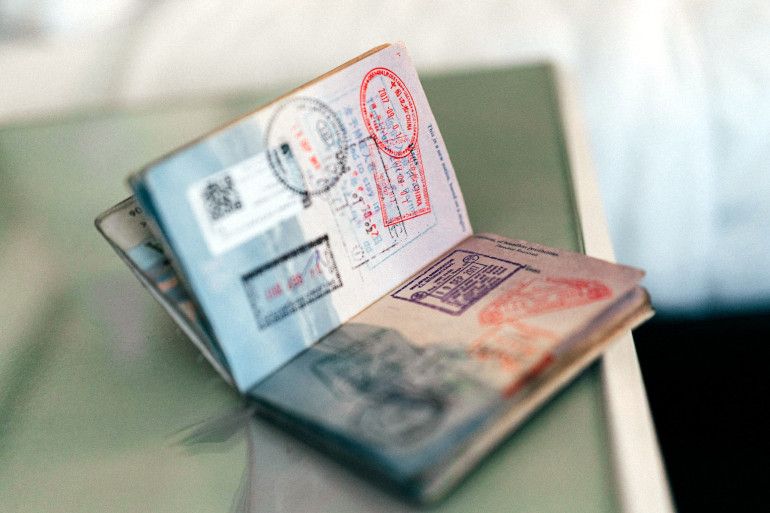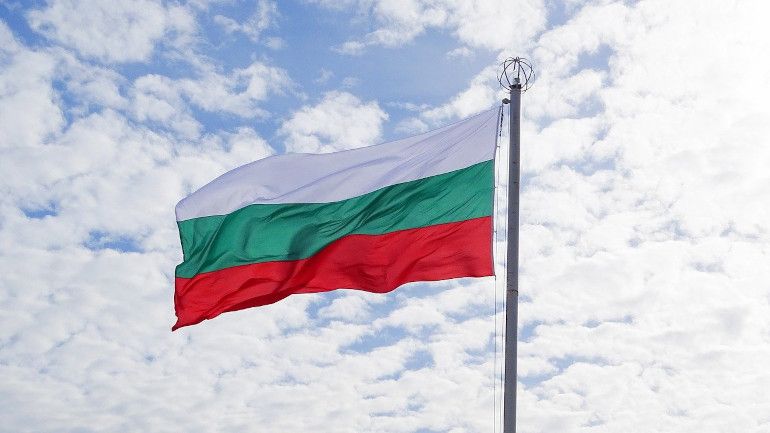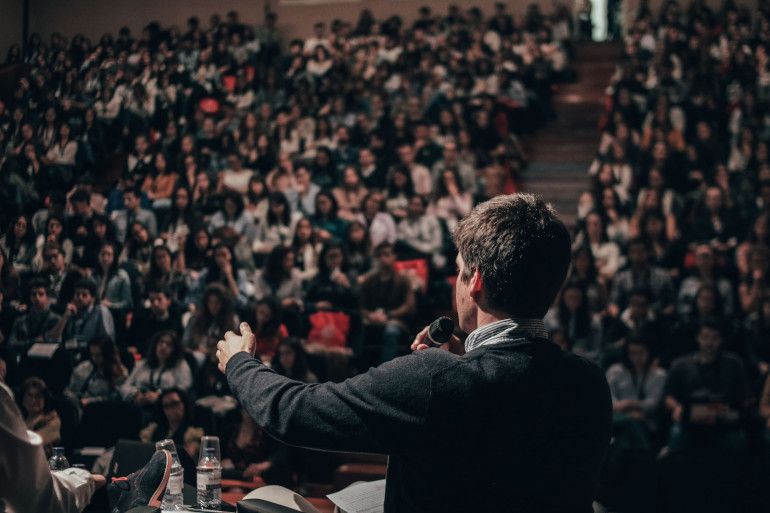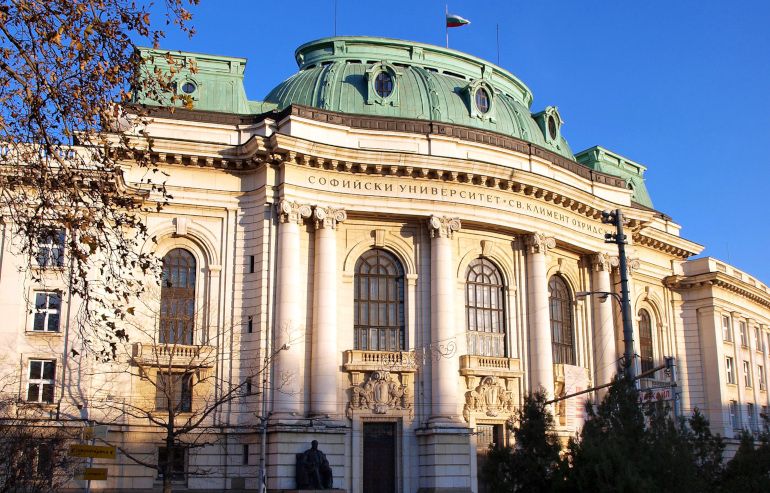How to enter a Bulgarian university as a non-EU citizen
Written by Scott Green and Veronika Zver, edited by Andrea Vushkova, photos by Unsplash
Published 23 March 2022, updated 23 November 2022
So you’re a Third-country National and you’re considering entering the Bulgarian Higher Education system? Quick note, prepare yourself to be asked incessantly about why! Simply why has been the question I’ve been asked the most. It's not illogical but depending on the response you give, you may get some odd reactions.
I recently went through the process of getting into a Bulgarian university. One thing that complicated the process for me was the overall lack of available information about the application process for third-country nationals. I hope this article will assist those of you from outside the EU who are interested in furthering their educational goals within this beautiful country that I now call home.
Why study in Bulgaria?
In the beginning, I was asked multiple times why I was even considering studying in Bulgaria, and for me, there are many reasons. A few of these are; having a beautiful country to live in and explore, a culturally and historically rich land, and a welcoming, kind, and generous people. Chief among my reasons -as it is for many people- is the cost of university education. For example, I’m Australian, and if I had studied there, I would be somewhere around 45,000 EUR in debt right now. However, I am now studying for four years (not just three years like it is in Australia), and I’ll be paying around a quarter of that, with no debt to my name.
What’s the process?
There are five overall steps to complete before you can legally reside in Bulgaria and remain studying at university. Please, don’t think these following five steps are few and therefore simple, misinformation is rife, and it’s far from straightforward. I don’t write this to discourage you, it’s simply to warn you. I had many many troubles, some, however, were due to my situation, or the Covid-19 Pandemic. Help from a local Bulgarian friend will almost certainly be needed, you may even need to engage the services of companies in Bulgaria who will assist you with the application process.
The four main steps are as follows:
1. Preparing your documents
2. Applying to your preferred university
3. Applying for the Student Visa (Visa D)
4. Coming to Bulgaria and applying for residency
5. Reapplying for residency every 12 months
1. Preparing your documents
The following documents are needed to submit your university application, but requirements vary between universities, so do your own research. I have added notes (in italics) to clarify what I did beneath each requirement.
- Application form and a letter of motivation.
- You will be able to find more information about this on the university website. - Original or notarized copy of high school diploma, and diploma supplement.
- These documents need to specify the period of attendance and the grades. Also need to be notarized and Apostilled in the country of issue, then translated into Bulgarian and notarized again. If translating outside of Bulgaria, you need to use a Ministry-authorized company. - A document issued by a competent body certifying the applicant’s eligibility to continue his/her studies in higher educational institutions in the country in which he/she has completed his/her secondary education.
- A document from your school/educational institution that clearly says that by you having attained your secondary school diploma, it automatically qualifies you for entry into university within the country where you completed secondary school. This also needs to be notarized and Apostilled in the country of issue, then translated into Bulgarian and notarized again. If translating outside of Bulgaria, you need to use a Ministry-authorized company. - Medical certificate.
- Just a note confirming good health and your medical info. Needs to be validated by the respective authorities in your country. Notarized, translated into Bulgarian, and notarized again. Must be issued no longer than 30 days before application. - A copy of the first page of your passport with your name in Latin letters.
- A certificate of language proficiency in the language of instruction.
- B2 is sufficient for most universities, but proficiency level differs, so do check. The university you’re applying to may also have its own language proficiency test if you don’t already have one. If you want to study in English and you completed your secondary schooling in an English-speaking country, you are exempt from needing to provide a language certificate. - Passport-size photos.
- The amount may differ between universities
2. Applying to your preferred university
Relatively simple, if you are not currently in Bulgaria then you will have to be in touch with the university’s international students department to arrange the sending of your documents, once the university accepts them they will send them to the Ministry of Education and Science. Once the Ministry has accepted them they will be returned to the university who will inform you of the decision.
I was in Bulgaria at the time of my application, which made many things easier for me, unfortunately though, that means I can’t give specific advice to help if applying from outside Bulgaria. What I can recommend is joining the Foreigners in Sofia and Friends Facebook group, or other similar Facebook groups and asking. There are many third-country nationals studying in Bulgaria, so you will find someone who can give you specific advice.
Side note, in August most ministry staff are on holiday, so expect longer wait times, I waited seven weeks to hear anything back. Secondly, you can only apply to one university as the Ministry acceptance doesn’t apply to every university in Bulgaria, only the one specified on the certificate (the one you applied to). You are however allowed to change university at a later date.

3. Apply for the Student Visa (Visa D)
This is where things can get rather annoying, time-wise, and there’s nothing you can do about it. Because the Ministry of Education took seven weeks to return my application -even though it had been approved three weeks prior- it meant I was later than I wanted to be in applying for the visa. Bulgarian universities are fairly relaxed and understanding when it comes to foreign students, so there is no need to stress out, just contact the international student center and let them know where you are up to with your application.
One thing I’ll note here is that you are supposed to apply for the Visa D from your country of residence, only under special circumstances can you apply from elsewhere. As I said earlier, I was still in Bulgaria as it was too difficult to return to Australia because of the Covid-19 Pandemic, plus I didn’t want to return. So I applied for special approval to apply from another country, I chose to apply from Belgrade, Serbia. But you can specify any country/city that has a Bulgarian Embassy.
This option isn’t available to everyone but is useful if you are in Bulgaria. If you write a compelling enough letter (you will need a Bulgarian speaker to go with you as they only speak Bulgarian and the letter must be written in Bulgarian) about why you can’t return to your country (time constraints, cost of flights, etc) maybe they will approve you, but I can’t be sure. You will get a response back within seven days letting you know if they have accepted your reason.
The documents needed are as follows:
- Application form and 100 Euro fee
- Photocopy of the first page of the foreign travel document.
- I supplied this, but the Embassy Representative asked why I included it. Bring it in case though, other Embassies may be different. - Photocopy of the last Bulgarian and Schengen visas/visas for the UK and the US, if any.
- I supplied these too, but as above they were not needed. - Color photograph (3.5 х 4.5cm.)
- Just your normal passport-size photo. - Medical insurance.
- Must be valid for Bulgaria, or the entire EU. Can just be your normal travel insurance that covers repatriation, urgent medical care, and emergency hospital treatment for the first 12 months. Must cover a minimum of 30,000 Euro. - Certificate of Acceptance issued by the Bulgarian Ministry of Education (original.)
- The certificate the university will give you after the Ministry of Education has accepted you. - Police clearance certificate from your country of residence.
- Must be no more than six months old, as well as notarized and Apostilled in the country of issue. Also needs to be translated into Bulgarian and notarized again. - Proof of payment of the educational institution’s tuition fee or declaration for having the financial provision at your disposal for the first year of study.
- A bank statement that has been stamped and signed by the branch manager will suffice -either for proof of payment or as proof of having the money available-, or a notarized Affidavit by family/ friend stating that they’ll support you financially for the duration of your study. - Proof of accommodation.
- Can be a booking confirmation for Airbnb or something similar, a rental contract, or proof of staying in student accommodation. I was lucky and was able to get an Affidavit stating that I can stay at the residence of a friend for the entire period of my study. So if you have a Bulgarian friend who can help you out, this is an option.
When using the services of translation agencies, if possible check how they have translated the documents into Bulgarian. I don’t speak Bulgarian but I can read the language and I noticed multiple mistakes in the translation of my Police Check. There were also mistakes in the translation of my high school diploma and academic transcript, but we didn’t question them in time, and luckily they weren’t an issue later on. When you return to the Embassy to get your student visa, make sure to ask them to give you back all your documents, as they didn’t return mine and I had to ask for them as you will need some of them to apply for residency when you get to Bulgaria.

4. Coming to Bulgaria and applying for residency
Within the first three months after initial entry into Bulgaria with your student visa, you must go to the Migration Office which is nearest you, and apply for residency -lichna karta-, take a Bulgarian speaker with you as it is exceedingly hard without. Also, a good idea is to arrive early as the queue quickly fills up, and make sure you are in the correct queue.
The documents you need to bring with you are as follows, and make sure to bring photocopies with you:
- Completed application form, written in Bulgarian
- Payment of applicable fees.
- The easiest way is to pay by card at the booth you’re at. You can also pay by cash, but you have to wait at a different booth to pay the fee, then return back to the original booth to show that you have paid. - Official government ID document.
- Photocopy of the first page, most recent entry stamp, and any other residency certificates which you might have. - Medical insurance.
- Must be valid for Bulgaria, or the entire EU. Can just be your normal travel insurance that covers repatriation, urgent medical care, and emergency hospital treatment for the first 12 months. Must cover a minimum of 30,000 Euro. - Certificate of Acceptance issued by the Bulgarian Ministry of Education (original.)
- The certificate the university will give you after the Ministry of Education has accepted you. You may also be asked to provide a certificate (uverenie) from your university stating that you are enrolled in the relevant semester. - Police clearance certificate from your country of residence.
- Must be no more than six months old, as well as notarized and Apostilled in the country of issue. Also needs to be translated into Bulgarian and notarized again. - Proof of having the financial provisions at your disposal for the first year of study.
- A bank statement that has been stamped and signed by the branch manager will suffice as proof of having money available or a notarized Affidavit by family/ friend stating that they’ll support you financially for the duration of your study. Funds available must be equal to or more than the minimum Bulgarian monthly salary. You may also be asked to provide a receipt from your university stating that you have paid for your first year. It is important to pay for the entire year as your study visa may be issued for a shorter period of time. - Proof of accommodation.
- Can be a booking confirmation for Airbnb or something similar, a rental contract, or proof of staying in student accommodation. I was lucky and was able to get an Affidavit stating that I can stay at the residence of a friend for the entire period of my study. So if you have a Bulgarian friend who can help you out, this is an option.
Once you have submitted your documents, you will have to return to the Migration office in two weeks to see if your documents have been accepted if they don’t call you prior. If they have been accepted you will be asked to fill out some more documents, then wait outside for 20 minutes before heading back inside to fill out more documents and have your photo taken for your Lichna Karta.
You can choose from three options of how quickly you want your card to be ready, they will give you a small piece of paper which you must keep and present when you return. I chose the 30-day option, but actually returned on the 29th day and my card was ready.
After this, you are now legally allowed to reside in Bulgaria for 12 months, and you must reapply every 12 months for the duration of your studies, the procedure for reapplying is very similar. During the above process or when you are reapplying for your residence permit, you may be asked to attend an interview. You’ll be asked a lot of general questions about your views, motivation to study, future plans, and even family members. This is because they want to make sure you were honest in your application.

5. Reapplying for residency
So you've spent your first 12 months studying in Bulgaria, we hope you have enjoyed it and it's everything you expected. Now it's time to reapply for residency, you can do this no less than three weeks before the expiration of your current residency. Again take a Bulgarian speaker with you as it is exceedingly hard without. Also, a good idea is to arrive early as the queue quickly fills up, and make sure you are in the correct queue.
The documents you need to bring with you are as follows, and make sure to bring photocopies of everything with you:
- Completed application form, written in Bulgarian
- Payment of applicable fees.
- The easiest way is to pay by card at the booth you’re at. You can also pay by cash, but you have to wait at a different booth to pay the fee, then return back to the original booth to show that you have paid. - Official government ID document.
- Photocopy of the first page of your passport, and a photocopy of the front and back of your current Lichna Karta - Medical insurance.
- Must be valid for Bulgaria, or the entire EU. Can just be your normal travel insurance that covers repatriation, urgent medical care, and emergency hospital treatment for the first 12 months. Must cover a minimum of 30,000 Euro. - Proof of continuing studies at university (uverenie)
- This is a slip of paper that you will need to ask the university about as where to get it may vary between universities. I got the form from the copy center near the university and then took that to the student department to fill out. Your student book, and, or, proof of having paid the university fees for the next year will not be accepted for this, you must have the "uverenie." - Proof of having the financial provisions at your disposal for the first year of study.
- A bank statement that has been stamped and signed by the branch manager will suffice as proof of having money available or a notarized Affidavit by family/ friend stating that they’ll support you financially for the duration of your study. Funds available must be equal to or more than the minimum Bulgarian monthly salary. When renewing my residency, I forgot to get the bank statements stamped by the branch manager, but the ministry still accepted them. - Proof of accommodation.
- Can be a rental contract or proof of staying in student accommodation. I was lucky and was able to get an Affidavit stating that I can stay at the residence of a friend for the entire period of my study. So if you have a Bulgarian friend who can help you out, this is an option.
Once you have submitted your documents the process is the same as the first time you applied, you will have to return to the Migration office in two weeks to see if your documents have been accepted if they don’t call you prior. If they have been accepted you will be asked to fill out some more documents, then wait outside for 20 minutes before heading back inside to fill out more documents and have your photo taken for your Lichna Karta, although they may not retake your photo. You will then return again after the specified time to pick up your Lichna Karta.
Open Bulgaria wishes you luck in your study endeavor in Bulgaria and we hope you enjoy this incredible country!
